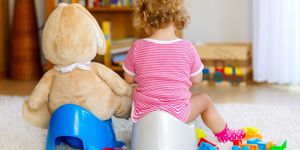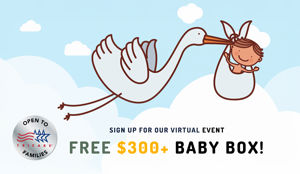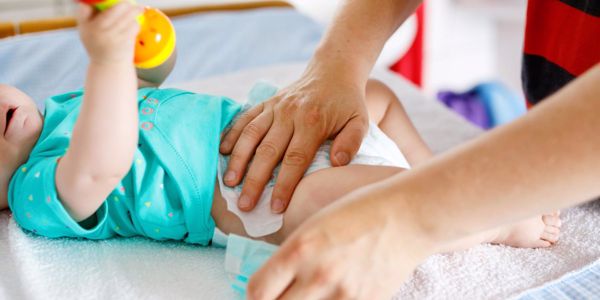Potty training is a bit like giving birth. You hope that it doesn't take too long, isn't really painful, or doesn’t make too much of a mess. There's no set age when you should start potty training and while people will tell you that girls are easier than boys, that's not always the case. As with a lot of developments, you'll need to be guided by your child and respond to their needs. It's not uncommon for your child to have a successful few goes on the potty and then not be interested again for days or weeks. The thing is to not make peeing or pooping into too much of a big deal, as you risk your child being frightened of it. Here are some easy tips to help you on your way:
Get your strategy sorted
Decide how you want to potty train your child, considering the following:
Using a potty vs. training seat on the toilet. It can be quicker to have multiple potties around the house but you will need to transition from potty to toilet at some point. If your child attends childcare you need to understand how they deal with potty training. Many daycares have small-sized toilets as well as potties. Consider your family lifestyle too, for example, if it's not practical to carry a travel potty around with you then you might want to get your child used to toilets first.
When you are out and about, there are lots of options, including finding the nearest public toilet. There are travel seats available that can make an adult-sized seat more accessible for little ones. Travel potties can be bulky to carry around but there are some folding options. Make sure that you have all the necessary accessories with you, including bags and wipes if required, and that you know how you are going to dispose of the contents! ‘Outdoor’ peeing are also an easy option, obviously, this is easier for boys but be mindful that young boys aren’t great with their aim! For girls, it is much easier and less risky for you to hold them up underneath their knees with bent legs rather than getting them to squat. This position is also advisable for outdoor poops! Be mindful of where you are in this situation, however, as you can’t very well have your child pee into a planter box outside an office building.
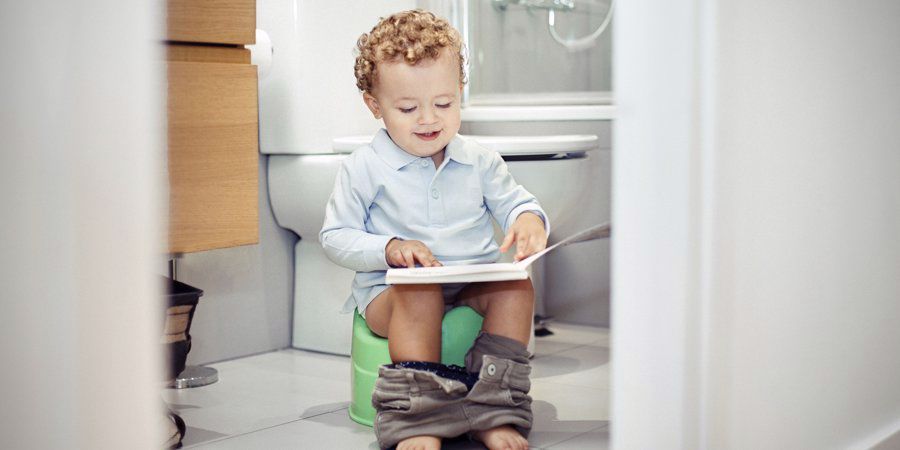
Whether you are going to use pull-ups as an intermediate stage before panties/traditional underwear is another thing to consider. This can be a great option for younger toddlers as it makes them feel more grown-up. Again, check with your childcare provider as to whether they will provide pull-ups through the day, as they are more expensive than standard diapers.
Decide if you are going to use any form of rewards, such as a sticker reward chart or a treat after every successful attempt. You need to use something that will motivate your child, but don't punish or remove rewards if accidents happen. Potty training is one of those instances where lots of praise is required. If your child is anxious or not motivated to try potty training, even the small task of sitting on the potty is a good step and gets them used to the position, even if they have to practice with clothes on for a while. Involve your whole family, as well as extended family and friends, to encourage your child. In the event of accidents, which there will be, talk in a kind, gentle voice to your child and explain that next time they need to go use the potty or toilet. Also reinforce the idea that it is okay for them to interrupt you if they need to go potty, since they may be afraid to if you’re busy.
Accidents
With regards to accidents, have a cleaning kit ready, and ideally, have more than one. You can never anticipate where or when an accident is going to happen. So if you have any heirloom cushions, blankets or rugs, it’s probably best to put them away for a while until things are under control. Keeping a stash of old towels or newspapers handy can also be useful, and you may be able to limit the damage to fabrics or upholstery. Encourage your child and let them know that it’s OK for them to tell you that they have had an accident. The last thing you want is them hiding it in some undisclosed location and finding out later.
Many parents use 'targets' in the toilet to encourage their boys to aim straight, such as shaving foam or cereal hoops. Whilst this can seem very fun for the first few times, you don't want to get caught up in having to provide something each and every time, especially for urgent visits! There's no reason why you can't train your son to use the potty sitting down first and then transition to 'stand up pees' using the toilet. Doing it this way means that you are training him for poop also, plus its a great example for younger siblings.
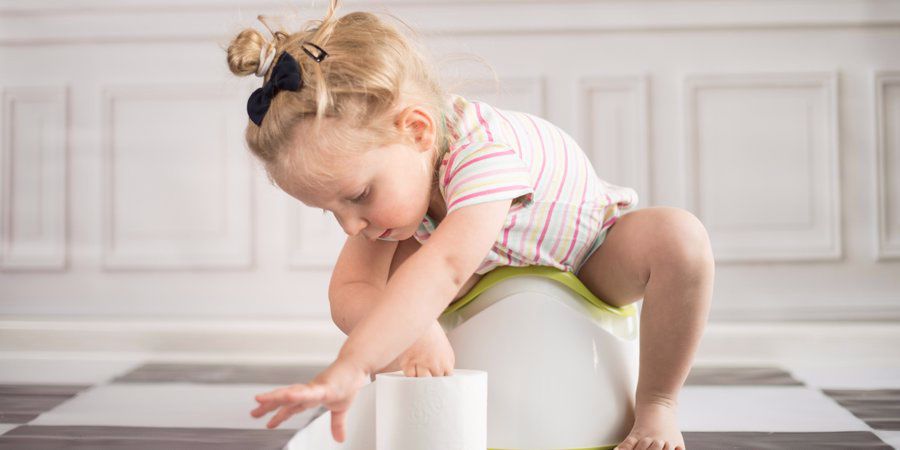
We have all the time in the world
You also need to consider your timescales, as potty training can take time. Waiting for your child to tell you or show you that they are ready can mean a shorter time period once you actually start. One approach is for your child to be diaper free constantly, and many suggest that your child could be fully potty trained in as little as three days. This approach means that your child is more aware of the sensation of needing the toilet and the feeling if they do have an accident. This does require an environment that your child can be diaper free in, such as being outside in the garden or being brave indoors! You could combine this strategy with the '15 minute approach' which is when you sit your child on the potty every 15 minutes. The aim of this is to encourage pee and poop, but also there should be fewer accidents. Again, this approach requires a lot of commitment from you.
Before you start with your child actually using the potty or toilet, you can get them used to being around one, or in a bathroom environment. Make it fun with toys, books or games in the same space so that the potty doesn't seem like an alien object. When your child does start using the potty, you could have the same toys or books on hand to occupy them. If possible, you could try and find a book which features a child or character using a potty or toilet.
Night night
Think about what you are going to do at night time. Many children can be dry during the day but still require additional help during the next night, and this can continue for a few years. Pull-ups can be a good progress step for night time, especially with the character options available that are less babyish than diapers. Be aware that pull-ups can be a bit leaky around the legs if your child moves around a lot! Even if you are using pull-ups or diapers, it is wise to invest in a waterproof sheet for your child's bed in case of large accidents. You can also buy special disposable mats which you can place under your child’s sheet. They can be expensive so look out for adult incontinence or puppy pads, which are the same thing! These pads are great for your child to sit on in the car or when you’re out somewhere like the cinema and worried about accidents.
Cleanups
Another great hack is to use a cheap paper towel as a liner in the potty, especially for poos. That way you can dispose of the contents easily, but make sure that whatever you use is suitable for flushing down the toilet. A quick rinse and wipe around the potty should be enough to keep it clean and hygienic, but you make want to keep a bottle of spray disinfectant handy when you need to do more of a clean.
In it together
It's a great idea to involve your child at every stage of the process. This could include taking them to choose their pants or underwear or picking out a potty. If you can face it, talking to your child whilst you are on the toilet can make it seem less intimidating. It’s a great idea to use books, TV programs, siblings or friends as real-life examples of potty-trained children. “Isn’t Chloe a big girl, she can wear panties and go pee on the potty” Remember though that it isn’t a competition!
Avoid distractions
Once you have started potty training, with whichever approach you are using, you will inevitably need to remind or encourage your child to use the potty or toilet. If your child is playing or distracted by something, it’s very easy for them to forget to go to the toilet or not be aware that pee or poop is coming. Once your child is more used to daily life without diapers, you won’t need to remind them so much. It is a good idea to reinforce the idea early on of going to the toilet before leaving the house so that it becomes second nature. Keep plenty of spare clothes handy, especially underwear and trousers. If your child attends childcare, remember to send them extra clothes until your child is fully potty trained.

